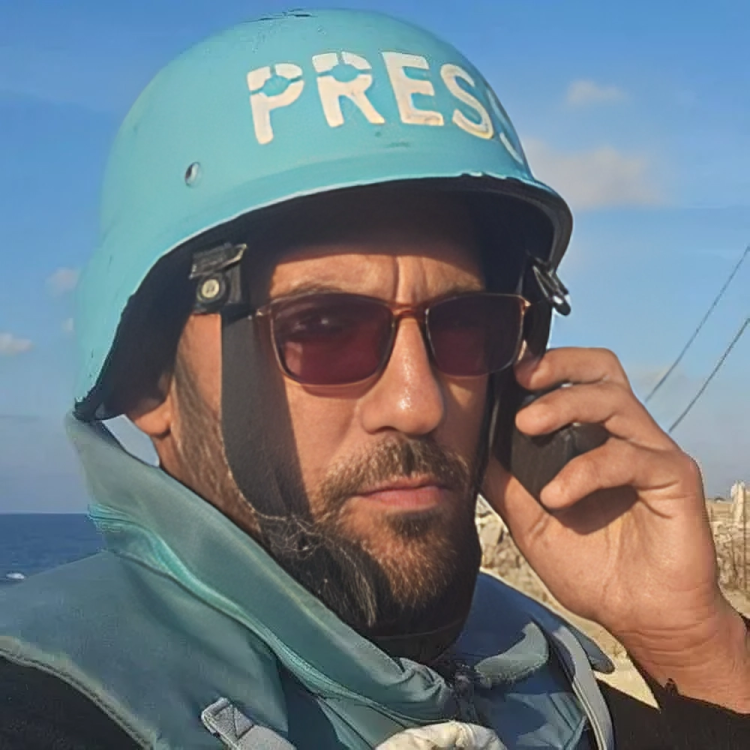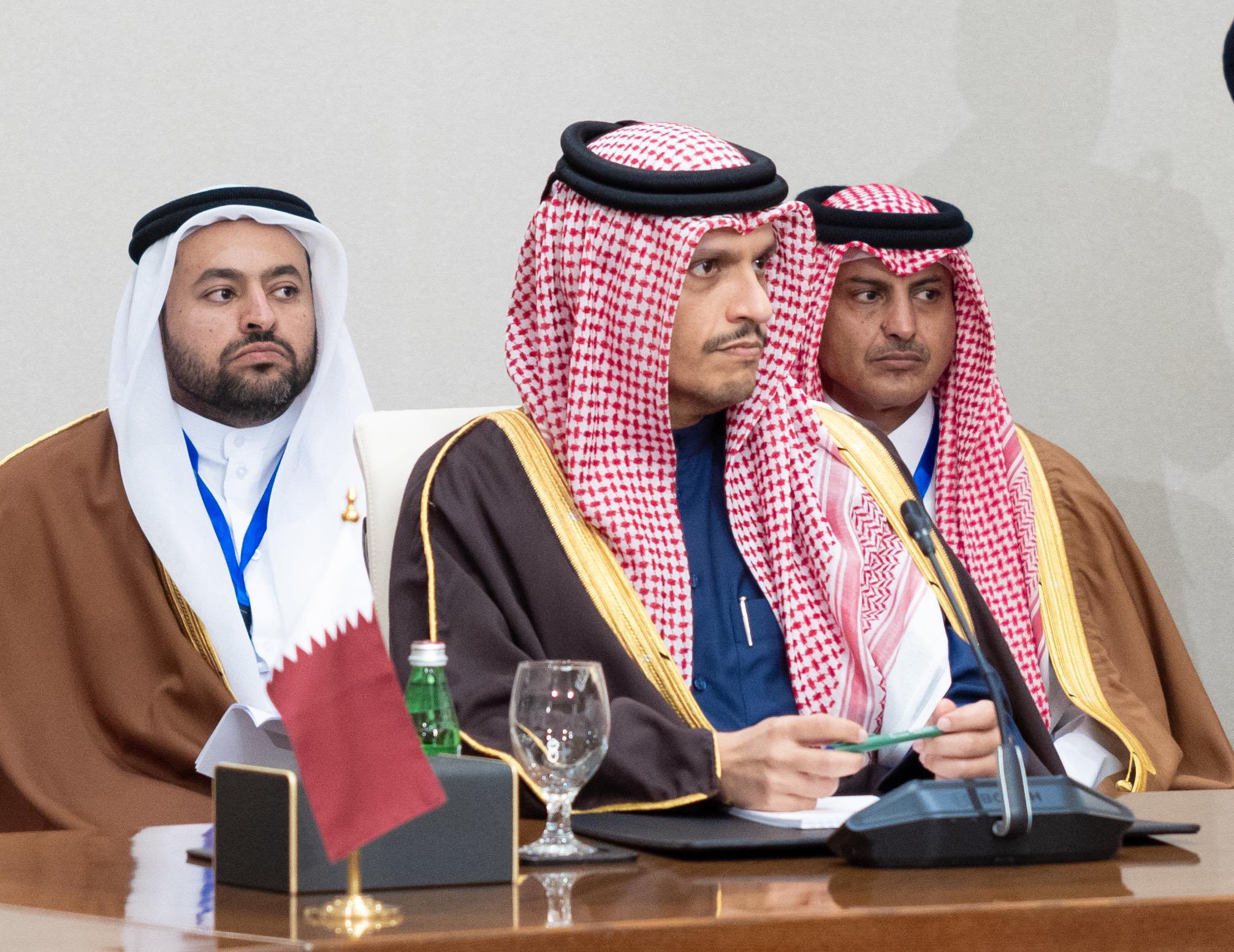As the world marks the 28th World Press Freedom Day, we take a look into press freedom in Qatar and the development of journalism in the Gulf state over recent years.
In recent decades, Qatar has stood at the forefront of developments in the media, mainly through establishing its revolutionary Al Jazeera channel in 1996, which has grown to become a major global news source for international and regional affairs.
But beyond its international influence, domestic press is an essential factor in determining the country’s status of press freedom. Currently, Qatar ranks second in the Gulf for press freedom, coming in close after Kuwait, and 128th worldwide.
Active progress
Now under the spotlight ahead of the FIFA World Cup 2022, Qatar has made major changes to hit milestones in civil liberty. Most recently, Doha announced plans to hold its first Shura [Cabinet] Council elections in more than 15 years. Authorities have also paid more attention to the pleas of migrant workers and have been more accepting of criticism and concerns shared by the general public on social networking websites – a feat when compared with neighbouring Arab states.
At the same time, and especially in recent months, Qatar has been targeted with ample articles from global outlets that are heavily critical of its treatment of migrant workers. Despite the focused pressure, authorities in Doha have managed to withstand the heat, regularly responding with public statements of clarification and in most cases, direct action to address the concerns.
“Publicly, I would not say the response is different. But privately, during discussions with officials and representatives, Qatar shows a good will to change its legal landscape – whether they are being sincere or not. This is the main difference with its neighbors,” Sabrina Bennoui, Head of the Middle East desk at RSF told Doha News.
Press violations
The return of the independent Doha News, though under new and local management, has also weighed heavily in Qatar’s favour. The original outlet was blocked by authorities in December 2016 over what authorities claimed were operating permit issues, though most saw the crackdown as a response to the publishing of articles deemed to be “unacceptable” to local society.
The blocking of Doha News was a major setback for the country, with Amnesty calling it ‘an outright attack’ on media freedom.
However, despite tackling sensitive issues, the revival of Qatar’s only independent outlet has been welcomed by the general public and tolerated by the government.
Read also: Qatar’s ‘revolutionary’ show soon back on air
Last year, Qatar’s Cabinet approved a draft law consisting of 74 articles distributed over 12 chapters to regulate the press, publications, publishing, media activities and the arts.
Amendments for five articles were recommended by the Shura council, according to state news agency QNA, though the final approval has yet to be made by the government.
In a 2019 interview with QNA, Abeer Shaheen Al-Kuwari, Director of the Publications and Artistic Works Department at the Ministry of Culture and Sports, the official said one of the suggested amendments included the removal of sentences in publishing cases to ensure freedom of expression is upheld in the Gulf state.
Commenting on Qatar’s press freedom, the International Press Institute’s [IPI] Director of Advocacy Ravi Prasad said the institute has not recorded any major press freedom violations from the Gulf state over the past year.
Earlier this month, Qatar Television confirmed it was in the process of reviving its “revolutionary” show “The Decision is Yours” [Lakom Al Qarar] after a decade-long absence from Doha’s screens – a move expected to revive the role of civil society.
The bold show was deemed to be one of a kind in both Qatar and the Gulf region and allowed the general public at the time to question senior officials and influential personalities in front of a live studio audience.
The return of the programme, which encourages dialogue and debate rather than suppressing free speech, comes amid a rising demand for free speech in the region, with a notable shift towards platforms that enable members of society to engage in open and free discussions.
Read also: Qatar to hold first ever advisory panel vote, Amir says
But Qatar’s warmth towards freedom of expression is not new.
In 2008, authorities abstained from joining other Arab countries in the Arab Satellite Channels Charter, which granted authorities the right to regulate and monitor media channels. The controversial charter was seen as a major violation for media freedom and stirred a public debate as it regulated the exchange of opinions through broadcasters.
Similarly, Qatar’s leading radio show “Watani Al Habeeb” has for years also served as a tool for Qatari citizens and residents to raise concerns over various issues concerning the local community, from the educational system to measures taken to curb the spread of Covid-19.
Setbacks and pending concerns
Despite progress, journalist rights groups believe there is still space for improvement and an urgent need to guarantee press freedom in the country.
In January last year, Qatar came under public scrutiny for the introduction of Article 136 under the “Crimes against Internal State Security” section of the penal code, which rights groups described as a setback to the country’s press freedom.
The article warns of up to five years imprisonment and a QAR 100,000 fine for whoever broadcasts, publishes or re-publishes rumors and false statements inside or outside the state, if it is intended to harm national interests, incite public opinion, or disturb the social or public order of the state.
Qatar’s Al Raya, which first published the news after receiving it from an unofficial source, revealed how the new law would criminalise any discussions related to state affairs that could stir public opinion.
The leaked version of the amendment led to public outrage on social media, with many shocked by the use of restrictive phrasing.
Though the official version of the law was edited following criticism, rights groups still believe it creates a concern for the country’s future of press freedom. The law does not define what constitutes “fake news”, critics said.
“This article should be deleted at once. It could have serious consequences for journalists, who are clearly the most likely targets of the phrase ‘whoever broadcasts’,” said Bennoui.
“It violates the public’s right to information because any important news report is potentially capable of ‘provoking public opinion’ depending on how it is received and how the public reacts,” she added.
Cybercrime law
Another law that imposes more risks and burdens to press freedom is Qatar’s 2014 cybercrime law, which criminalises fake news shared online. Those ruled to be in violation of the law face a three-year imprisonment.
Such restrictions contribute to the limitation of a diverse news coverage in Qatar and place an obstacle to the right of accessing information for millions of residents.
“There is a cruel lack of pluralism regarding the local Arabic-speaking newspapers. They all basically report the same stories and publish the news sent by the QNA,” explained Bennoui.
Read also: OPINION: Saudi-UAE run bot factories are a threat to free speech
The 2019 closure of the Doha Centre for Media Freedom was another concern for RSF, which described it as a “negative message sent towards those who believed in a real free press in Gulf countries”.
The centre was the only independent body in Qatar and, until now, it remains unclear why it was shut down. It’s shuttering added to the country’s categorisation in the Freedom House Index as “not free”, the index explained.
For Qatar, three factors need to be addressed, Bennoui said.
The lack of pluralism and reflection of the community in the media landscape, the absence of independent media, and the laws that limit the freedom of expression.
Furthermore, “Qatar must implement the press freedom principles it accepted when it ratified the International Covenant on Civil and Political Rights and the International Covenant on Economic, Social, and Cultural Rights treaties, as well as the Arab Human Rights Charter and the International Covenant on Civil and Political Rights,” she said.
Qatar’s media prominence across the Middle East and North Africa region, especially as the home of the global Al Jazeera network, provides the country with both the incentive and ability to promote free press internationally and, more importantly, domestically.
Follow Doha News on Twitter, Instagram, Facebook and Youtube







